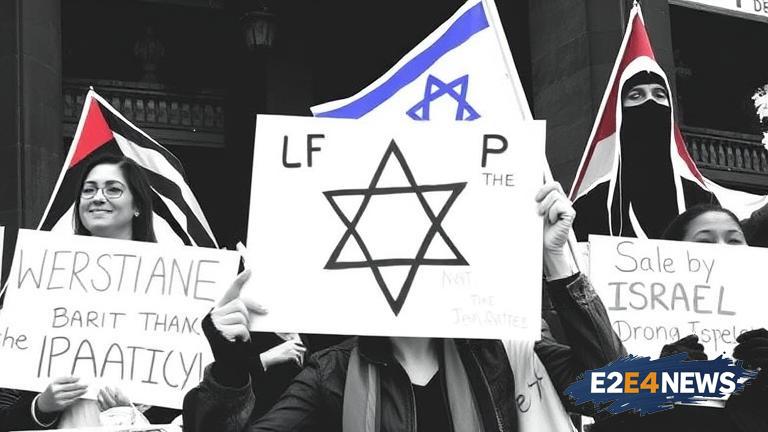A comprehensive study conducted by Indiana University has shed light on the highly coordinated efforts of anti-Israel activism on US college campuses. The research, which analyzed data from various sources, including social media and university records, found that anti-Israel groups often work together to promote their agendas. This coordination is not limited to individual campuses, but rather is a nationwide phenomenon, with groups sharing resources and strategies to maximize their impact. The study’s findings have significant implications for the debate over free speech and academic integrity on college campuses. Pro-Israel groups have long argued that anti-Israel activism often crosses the line into anti-Semitism, and that universities have a responsibility to ensure that all students feel safe and welcome. The Indiana University study provides evidence that anti-Israel activism is not just a spontaneous expression of student opinion, but rather a carefully planned and executed campaign. The study’s authors found that anti-Israel groups often use social media to coordinate their efforts, sharing information and resources to promote their cause. This coordination is not limited to student groups, but also involves outside organizations and individuals who provide funding and support. The study’s findings have sparked concerns about the influence of external factors on campus politics, and the potential for anti-Israel activism to be used as a tool for promoting hatred and intolerance. The researchers also found that anti-Israel groups often use tactics such as boycotts, divestment, and sanctions (BDS) to pressure universities into taking action against Israel. These tactics have been widely criticized as a form of economic warfare, and have been condemned by many as a form of anti-Semitism. The study’s authors argue that universities have a responsibility to ensure that all students feel safe and welcome, and that anti-Israel activism does not cross the line into hate speech or discrimination. The study’s findings have significant implications for the debate over free speech on college campuses, and highlight the need for universities to balance the right to free speech with the need to protect students from hate speech and discrimination. The researchers also found that anti-Israel groups often target Jewish students and faculty, using tactics such as intimidation and harassment to silence them. This has led to concerns about the safety and well-being of Jewish students on campus, and the need for universities to take action to protect them. The study’s authors argue that universities have a responsibility to ensure that all students feel safe and welcome, and that anti-Israel activism does not cross the line into hate speech or discrimination. The study’s findings have sparked a national debate about the role of anti-Israel activism on college campuses, and the need for universities to take action to protect students from hate speech and discrimination. The researchers also found that anti-Israel groups often have links to external organizations and individuals who provide funding and support. This has led to concerns about the influence of external factors on campus politics, and the potential for anti-Israel activism to be used as a tool for promoting hatred and intolerance. The study’s authors argue that universities have a responsibility to ensure that all students feel safe and welcome, and that anti-Israel activism does not cross the line into hate speech or discrimination. The study’s findings have significant implications for the debate over free speech on college campuses, and highlight the need for universities to balance the right to free speech with the need to protect students from hate speech and discrimination. The researchers also found that anti-Israel groups often use social media to promote their cause, and to coordinate their efforts with other groups. This has led to concerns about the role of social media in promoting hate speech and discrimination, and the need for universities to take action to protect students from online harassment. The study’s authors argue that universities have a responsibility to ensure that all students feel safe and welcome, and that anti-Israel activism does not cross the line into hate speech or discrimination. The study’s findings have sparked a national debate about the role of anti-Israel activism on college campuses, and the need for universities to take action to protect students from hate speech and discrimination.





